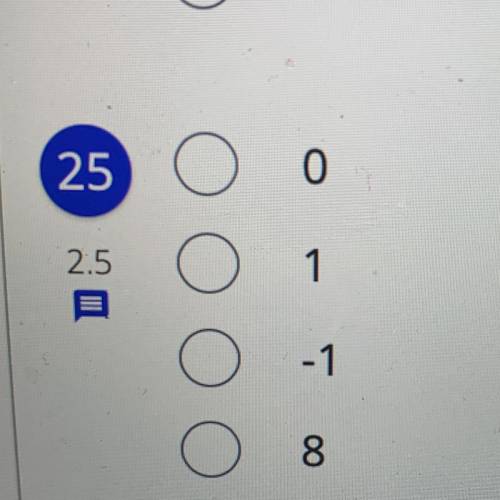Let
c(x) = {{-2, 24}, {-1, 8}, {0, 0}, {1, 0}, {2, 8}}
d(x) = {{-2, 116}, {-1, -1}, {0, 0}, {...

Mathematics, 18.03.2021 01:10, kaysayfam747
Let
c(x) = {{-2, 24}, {-1, 8}, {0, 0}, {1, 0}, {2, 8}}
d(x) = {{-2, 116}, {-1, -1}, {0, 0}, {1, -1}, {2, 116}}.
Find c(d(1)).


Answers: 3
Other questions on the subject: Mathematics

Mathematics, 21.06.2019 19:50, TURBONTRO6830
Asequence is defined recursively using the formula f(n + 1) =f(n) - 5. which sequence could be
Answers: 1

Mathematics, 21.06.2019 21:50, Animallover100
What is the missing reason in the proof? segment addition congruent segments theorem transitive property of equality subtraction property of equality?
Answers: 3

Mathematics, 21.06.2019 23:30, Bryanguzman2004
Which two fractions are equivalent to 24/84? 6/42 and 2/7 6/21 and 2/6 12/42 and 3/7 12/42 and 2/7
Answers: 1

Mathematics, 22.06.2019 00:00, kaylagoof4140
Which expression is a perfect cube? a. x8 b. y24 c. m28 d. x64
Answers: 3
Do you know the correct answer?
Questions in other subjects:


Mathematics, 02.07.2019 16:00

Computers and Technology, 02.07.2019 16:00

Biology, 02.07.2019 16:00

History, 02.07.2019 16:00


Mathematics, 02.07.2019 16:00

Mathematics, 02.07.2019 16:00


Mathematics, 02.07.2019 16:00






